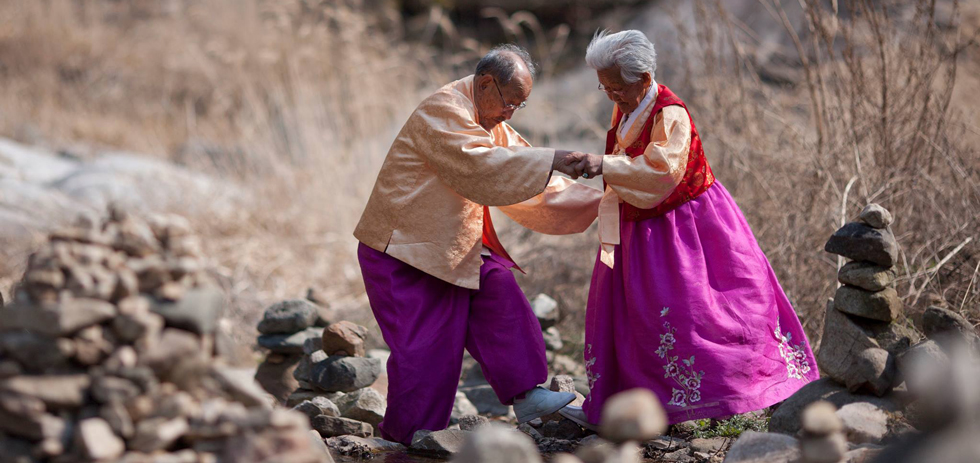
It can be, basically, reductive, to write about films which deal with the really, really big questions – life, death, love, time – especially when those films represent a place in the world, a mode of production, or an industrial context completely foreign to you. The answer to this conundrum, for my money, is that the best films tap into a universality which neither mollycoddles viewers with neat, all-encompassing statements, nor alienates them with too-easy efforts at profundity. My Love, Don’t Cross That River is a work which seems poised to fall either side of this razor-thin line: a documentary charting the last months of a seventy-five year relationship between an elderly Korean couple, the film, incredibly, performed well enough in its native country to unseat films like Interstellar at the box office and become the most successful home-grown independent doco in history there. Sometimes, popularity among cinemagoers along with enough festival cache to appear on the SFF roster can doom a film to likely tepidity, inoffensive enough to gain traction from all sides. Director Jin Mo-young, though, imbues the piece with enough offbeat humour, beautifully measured imagery, and moments of reflection for both its characters and its audience to make River an unqualified success.
The light-heartedness of much of the film is one of its most surprising features, and actually works to heighten the emotional impact of its later scenes dealing with the illness and eventual death of the husband, Byeong-nam. In its first half hour, his wife Kye-yeol, who at 89 is significantly younger and healthier than her husband, instigates all manner of hijinks, seemingly for her own comfort as much as amusement. Chucking leaf piles, or fresh snow, at Byeong-nam, or asking him to sing to her while she uses the outside toilet, are genuinely funny – the couple’s vitality and refusal to let go of youthfulness is hilarious as well as touching – but also hint at her knowledge that this can’t last all that much longer. When her husband proudly states that he’ll be 100 in five years, she asks: “who’ll cook for you then?”, perhaps not planning to be around herself. Near the end of life, the short term suddenly takes on a great significance.
This duality is captured respectfully by Jin, who revels in the opportunities for slapstick humour which come from two such old people behaving like teenagers – a pan up from Kye-yeol collecting plants from a stream revealing Byeong-nam throwing stones into the water to splash her and chuckling madly is a standout moment of warmth. He also, though, frames the drab, grey concrete of their home and the earthy colours of the surrounding woodland with a rigidity which places the couple in a bygone, archaic state. Their dress, often traditional Korean clothing, matching in colour and in wildly bright pinks and yellows, as well as the modest but intricate multi-platter meals they prepare, speak of people for whom the modern world might hold less joy than a simpler one from decades ago. Indeed, although I use their names for simplicity, Byeong-nam and Kye-yeol are not identified as such during the film. Neither is the part of South Korea they live in mentioned, nor are any narration or intertitles provided to flesh out their characterisation. Paradoxically, this decision actually enhances the intimacy of the film, giving it an unadorned feeling, and touching on that universalism so hard to come by in works honing in on such a small scale.
The attention to detail, both human and environmental, is what makes My Love, Don’t Cross That River an especially immersive and touching film rather than simply a good one. Fleeting cutaways to colourful frogs floating downstream, falling snow, or one of the couple’s pair of ragged dogs could come across as overreaching in a film less restrained in its exploration of time and loss. It’s telling that despite its setting so far from Australian urban cinema screens, there isn’t a single line of dialogue or personal interaction that feels lost in translation. Instead, the palpable warmth of the film’s commitment to its subjects shines through the screen, and carries its other themes of the passage of time, loss, and ageing out of tearjerker territory into a quiet, measured space, wholly effective in making this strange, provincial little story feel like a microcosm of the human condition.
